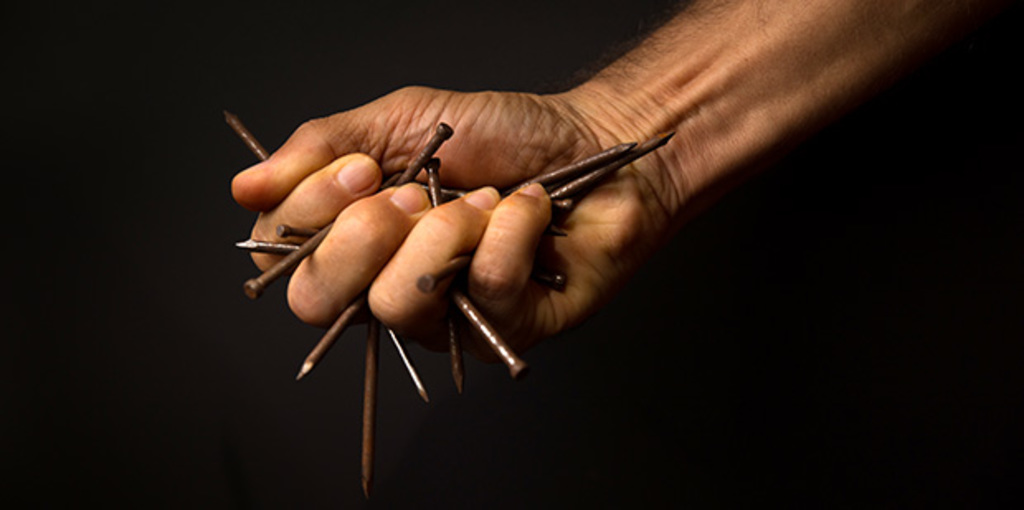Man up for Saturday football!

Man up for Saturday football!
From my mid-teens to late twenties, Saturday was a day for football, and everything built in anticipation of playing the game. Even now there are smells, sights, sounds and memories that I associate directly with the changing rooms, strips, boots, balls, and the rainy, windswept pitches I inhabited every Saturday afternoon.
What I recall most vividly is the smell of the liniment oil, the deep heat, the grass stains on the socks, the grazes on the knees, the sweat on the shirts, the stinky shin pads and mud-caked boots, the drippy lukewarm showers and the greasy cheap pies served up with a pint in the pub afterwards.
But none of these memories linger as strongly as the hardness that personified success in the game. The memories that stay strongest with me are of the men that played what they call the ‘beautiful game’. Being able to get stuck in, hurt others, suffer and hide your pain and be ruthless were all part of the game. All these celebrated traits evoke a stronger memory than the tangible bits like the mud and grass and tangled nets and rusty goalposts.
The game offers a reflection, and it’s one that makes me consider the current role of men in the world. The hard protected man full of bravado and front typified everything about those autumn to late spring Saturday afternoons.
Although football enveloped my life, it was a game I played with an agonising mix of enthusiasm, excitement, disappointment, fear, trepidation and shame: for to be a success at football you needed one thing more than any other, and it was the thing I lacked most – that was hardness.
Skill and clever play took you so far, but to make it in the game you simply had to be hard – uncompromisingly, unrepentantly, bone crunchingly physical. And I just didn’t have it in me.
For years I heard the phrases, toughen up, don’t be a pussy, man up, get stuck in, take a game. And for years I felt less of a man for not being what I thought was a deficiency in my make up. “What is wrong with me” was in my thoughts, but deep down I knew I just wasn’t wired that way! I had too much love for people and myself to fly into tackles or stick my head in where it hurt.
But I continued to play because it meant something to me; it was my way of fitting in, gaining the approval of the coaches and other players. The recognition of doing well, the dream of being better, accepting myself through my play, but I was never far away from the crush of being dismissed as weak or ineffective.
And now I look back and see that the ability to ‘man-up’ – which is reflected so strongly in contact sports such as football, and in the pain of endurance sports – is a conditioning we grow into as our natural gentleness is rejected by the world around us. The term ‘Real Man’ gets bandied around, but my reference for what that means has changed deeply from the messages I heard spread across my teens and twenties. What I heard was talk of a man being someone who could play through pain, hurt themselves and hurt others if necessary to win a challenge, a tackle, a match-up.
In recent years I heard a man, Serge Benhayon, talk very differently of who men are at heart, and it challenged the ‘man up’ image I saw across those football pitches for all those years, while at the same time making perfect sense. Here was a description of men that seemed like the hidden version – a ghost we rarely glimpse. Perhaps it comes out most when a small and delicate newborn child is present. Men change. They become something else. Do they perhaps become real men, gentle, caring, tender… the version that is endangered, very nearly extinct, but shouldn’t be?
Could we be at our most natural when we drop away the layers that make us numb to pain and discomfort? Because to admit we have feelings, communicate them and be open to being raw and exposed is not a state of play many men feel comfortable with. Nor do they normally share a vulnerability and fragility in everyday life. None of this is currently accepted in the world of football, and few other environments either.
What if as men we built our measure of success on something else? Not on an ability to win a football match, but on how well we actually relate to one another as men, on a deeper level than just football related conversations or the superficial score draws of matching achievements, the safe ground of small talk, hiding anything that might leave us exposed to ridicule or judgement or dare I say it, the intimacy of knowing one another!
We could measure success in the lowering of suicide rates among men of all ages, less domestic violence, an ability to dissect our issues without the need to retreat to our caves filled with beer and safe neutral ground chat.
We can start by treating young boys with the same tender care afforded to girls. Be courageous in our willingness to challenge the status quo, and not accept the empty chat and genuine lack of connection that if we are honest leaves us empty and unfulfilled.
We don’t have to accept the set up that real men are not meant to display weakness, not meant to share feelings and talk things through. It’s open to change and it starts with us accepting our sensitivity and delving deep to recognise that in others too.
Filed under



 PRINT PAGE
PRINT PAGE




